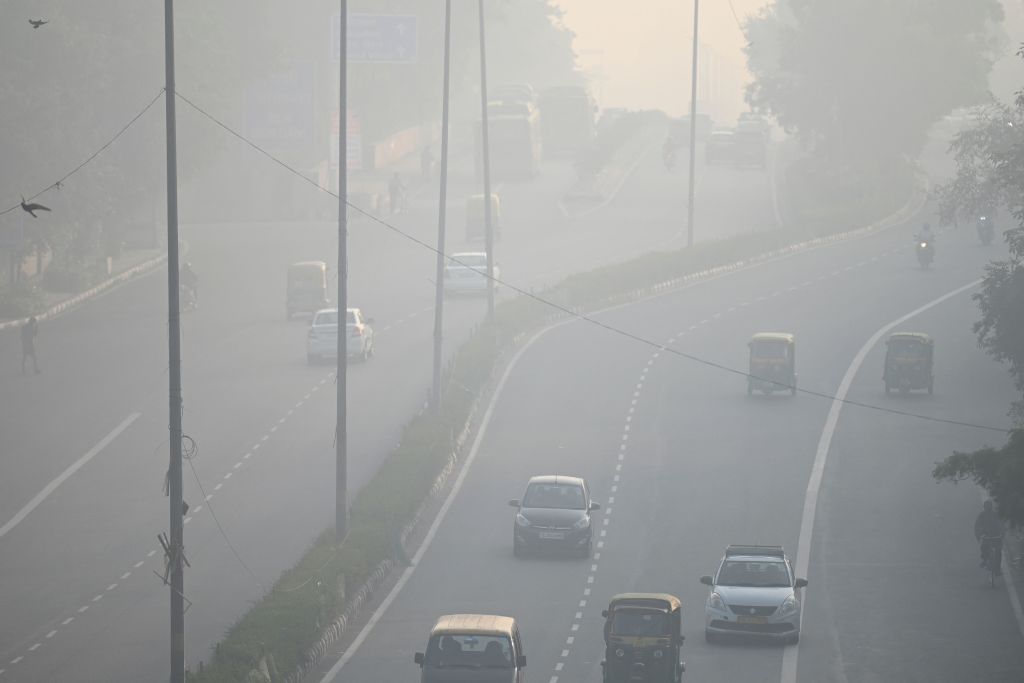- Friday, December 27, 2024
This appeal in Baku comes as northern India has been witnessing a rise in pollution with New Delhi’s air quality hitting a ‘severe’ level for the first time this season

By: Shajil Kumar
DESCRIBING pollution as a “transboundary” issue, India has urged nations, especially Pakistan and Bangladesh, to take proactive and collaborative measures to manage and mitigate air pollution across borders.
This appeal comes as northern India has been witnessing a rise in pollution with New Delhi’s air quality hitting a ‘severe’ level for the first time this season, with the Air Quality Index (AQI) reaching 418, on Wednesday.
Ministers and heads of delegations from six of the eight countries that share the Earth’s tallest cryosphere zone met at a meeting hosted by Bhutan’s Prime Minister Tshering Tobgay on day two of the global climate conference COP29 in Baku, Azerbaijan on Tuesday, International Centre for Integrated Mountain Development (ICIMOD) said in a statement on Wednesday.
ICIMOD is a regional intergovernmental learning and knowledge sharing centre.
In the meeting, India highlighted air pollution as a pressing and shared challenge within the Indo-Gangetic airshed.
“This is a transboundary issue. All countries must work together to address air pollution,” said Naresh Pal Gangwar, Joint Secretary, Ministry of Environment and Forest and Climate Change.
He urged nations, particularly Pakistan and Bangladesh, to take proactive, collaborative steps to manage and mitigate air pollution across borders, the statement said.
Earlier this month, Pakistan blamed winds from India for worsening air quality in Lahore and taking the smog to “dangerous levels”.
Pakistan Punjab’s environment minister Marriyum Aurangzeb had told an Indian daily that it was ‘high time’ both the countries, “especially Punjabs on both sides of the border”, come up with a joint plan to combat smog.
Melting snow
Tuesday’s meeting took place as scientists issued fresh warnings about unprecedented economic and environmental losses from ice and snow melt, with 2023 setting records for cryospheric degradation.
The Hindu Kush Himalaya (HKH) region, often referred to as Asia’s “water tower”, supplies fresh water to nearly two billion people across Asia.
Yet, climate change-induced warming has accelerated glacial melt, threatening water, food, and energy security for millions in the region.
Bhutanese Prime Minister Tobgay said, “With global temperatures rapidly nearing the 1.5 degree Celsius threshold, we must act now, collectively, to mitigate impending disasters that will affect both mountain populations and 1.6 billion people living downstream.”
Other regional leaders voiced similar concerns. Nepal’s Forests and Environment Minister Ain Bahadur Shahi Thakuri cited recent disasters, including a flood that swept away an entire village in the Himalayan nation, calling for global solidarity to address the region’s vulnerabilities.
Pakistan’s Coordinator to prime minister on climate change, Romina Khursheed Alam, urged unity and stronger international support, underscoring that the future of the HKH region relies on sustainable, resilient efforts that transcend individual nations.
Bangladesh echoed these calls, stressing that the impacts of the climate crisis extend across borders and require regional commitment.